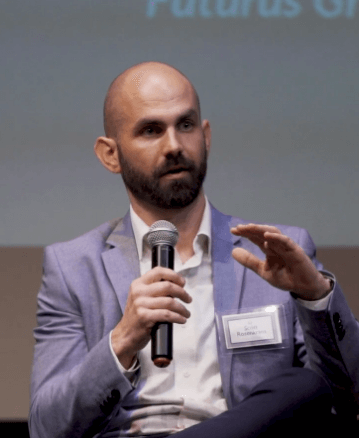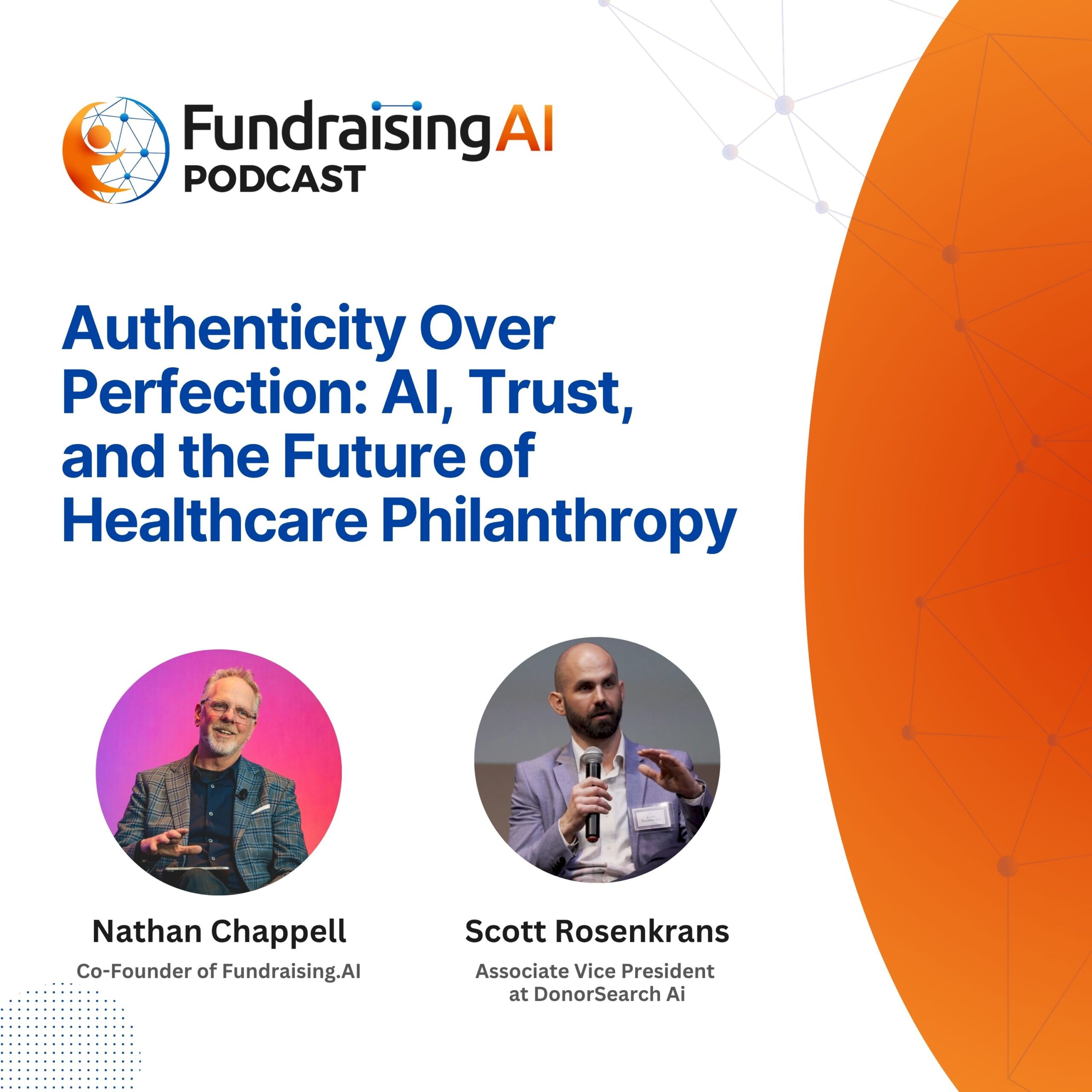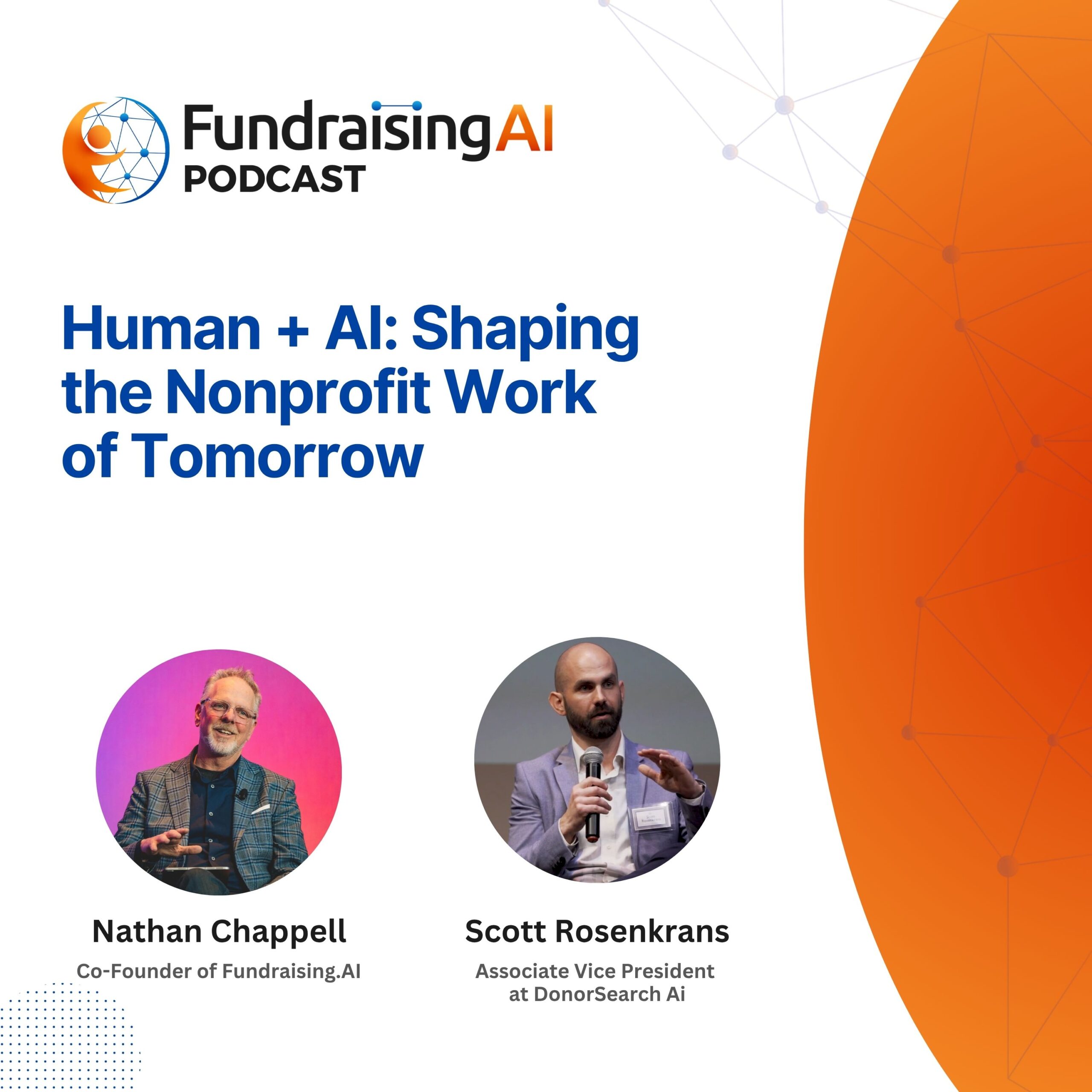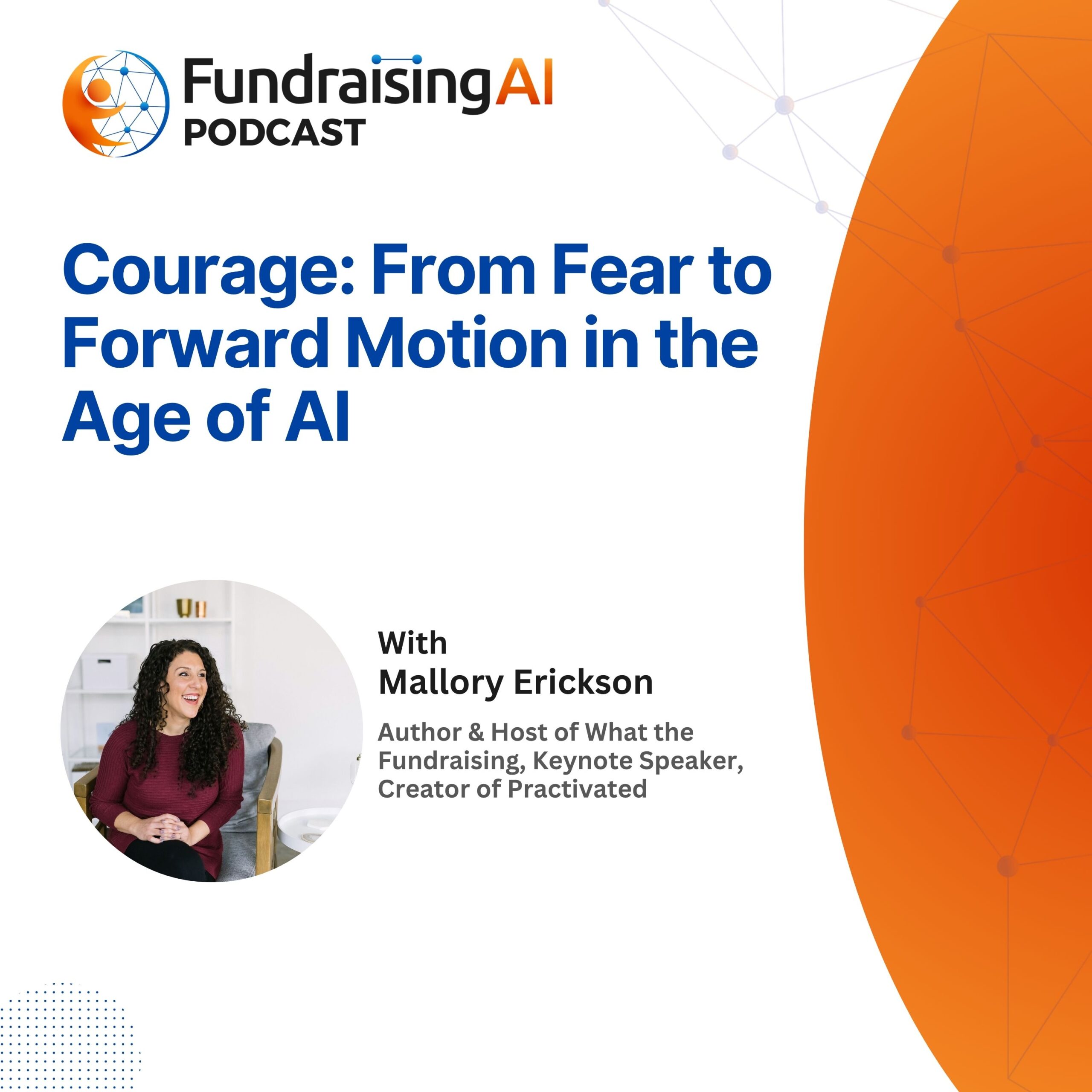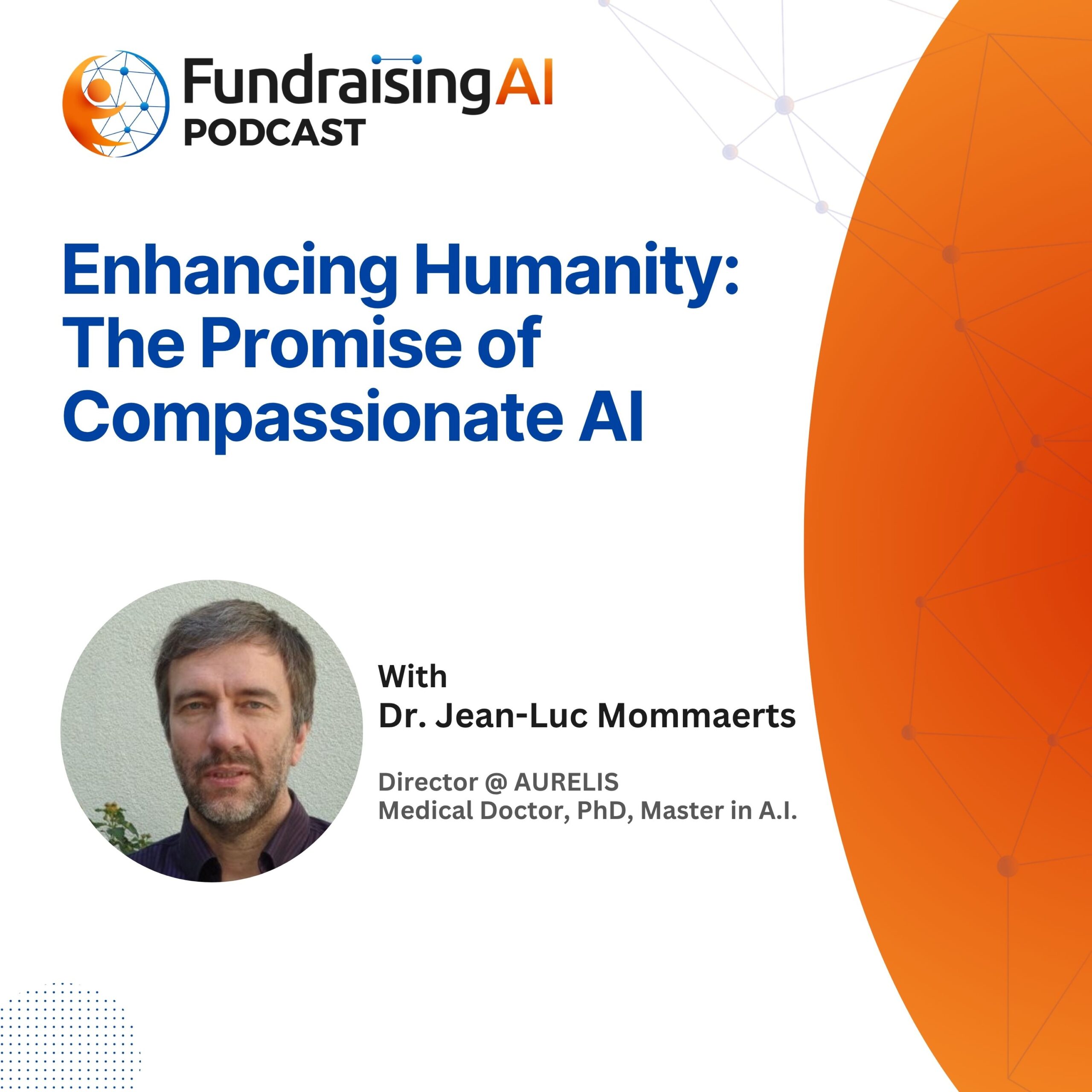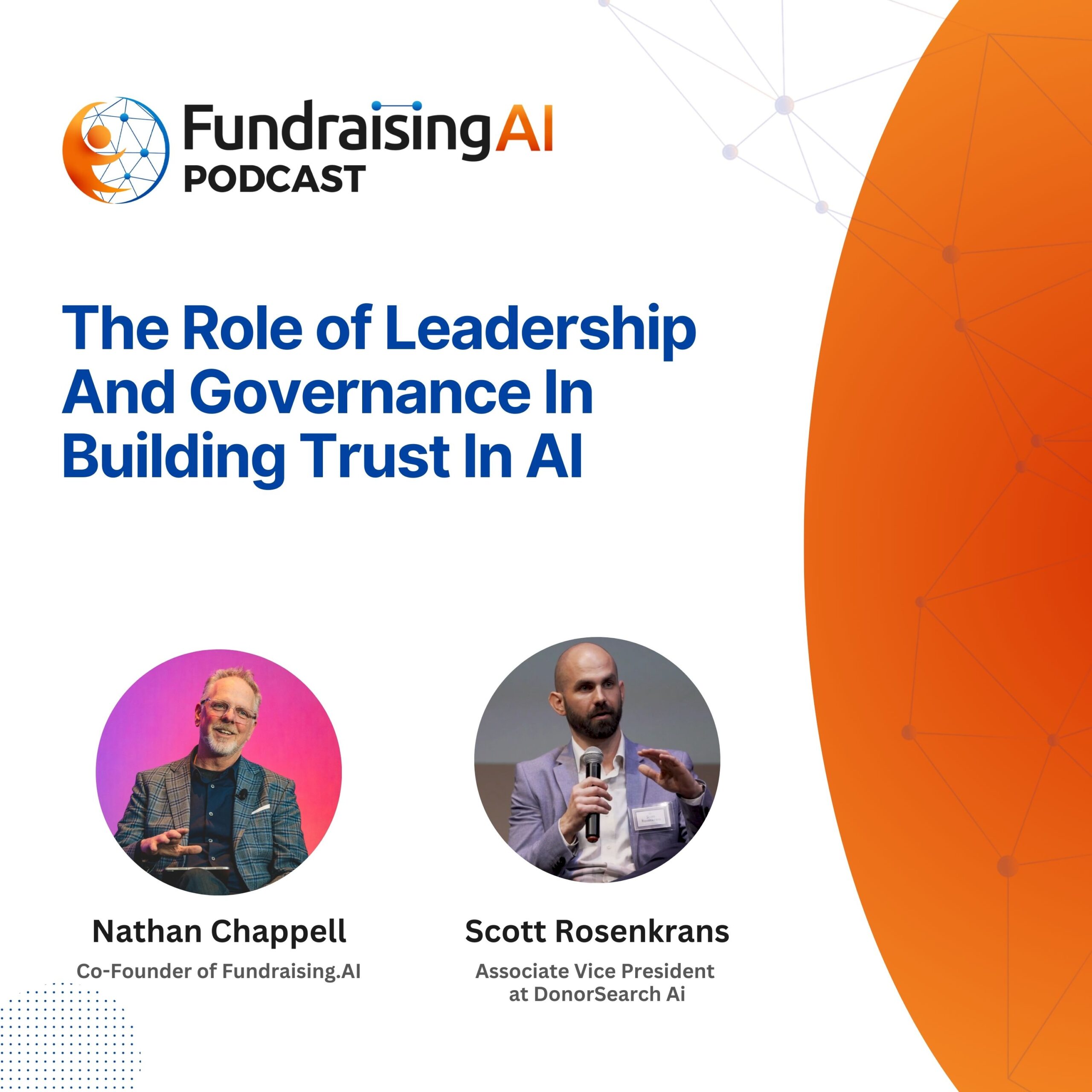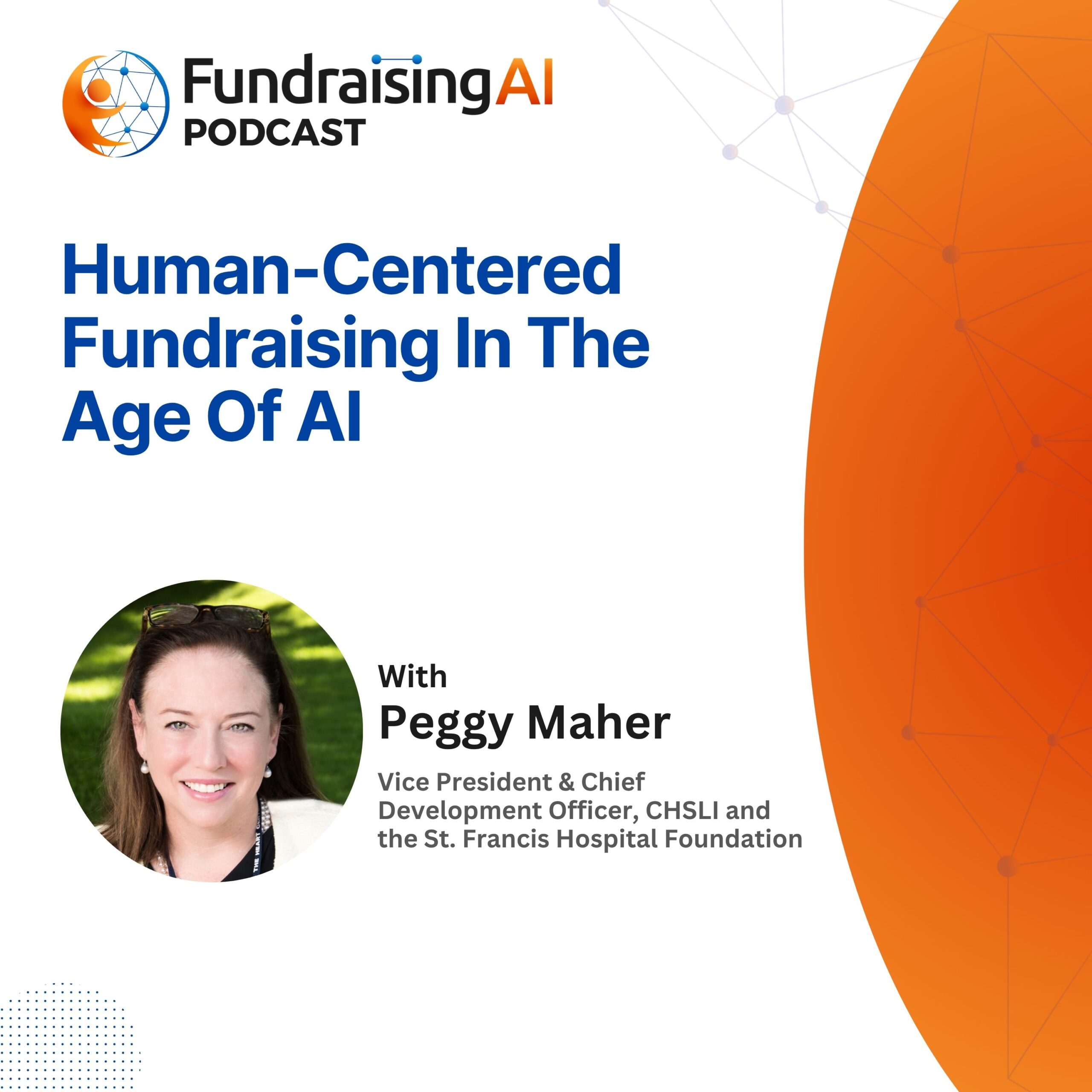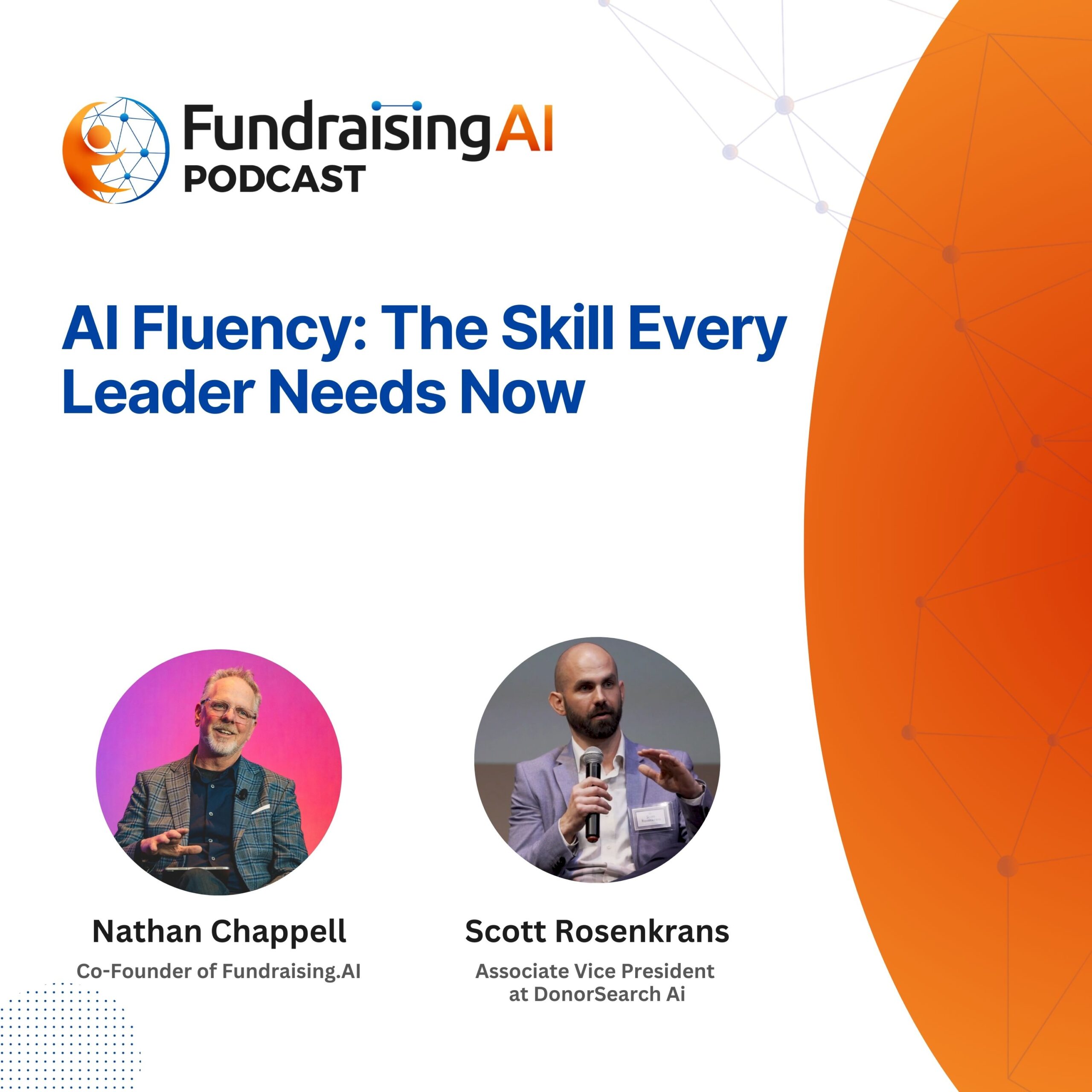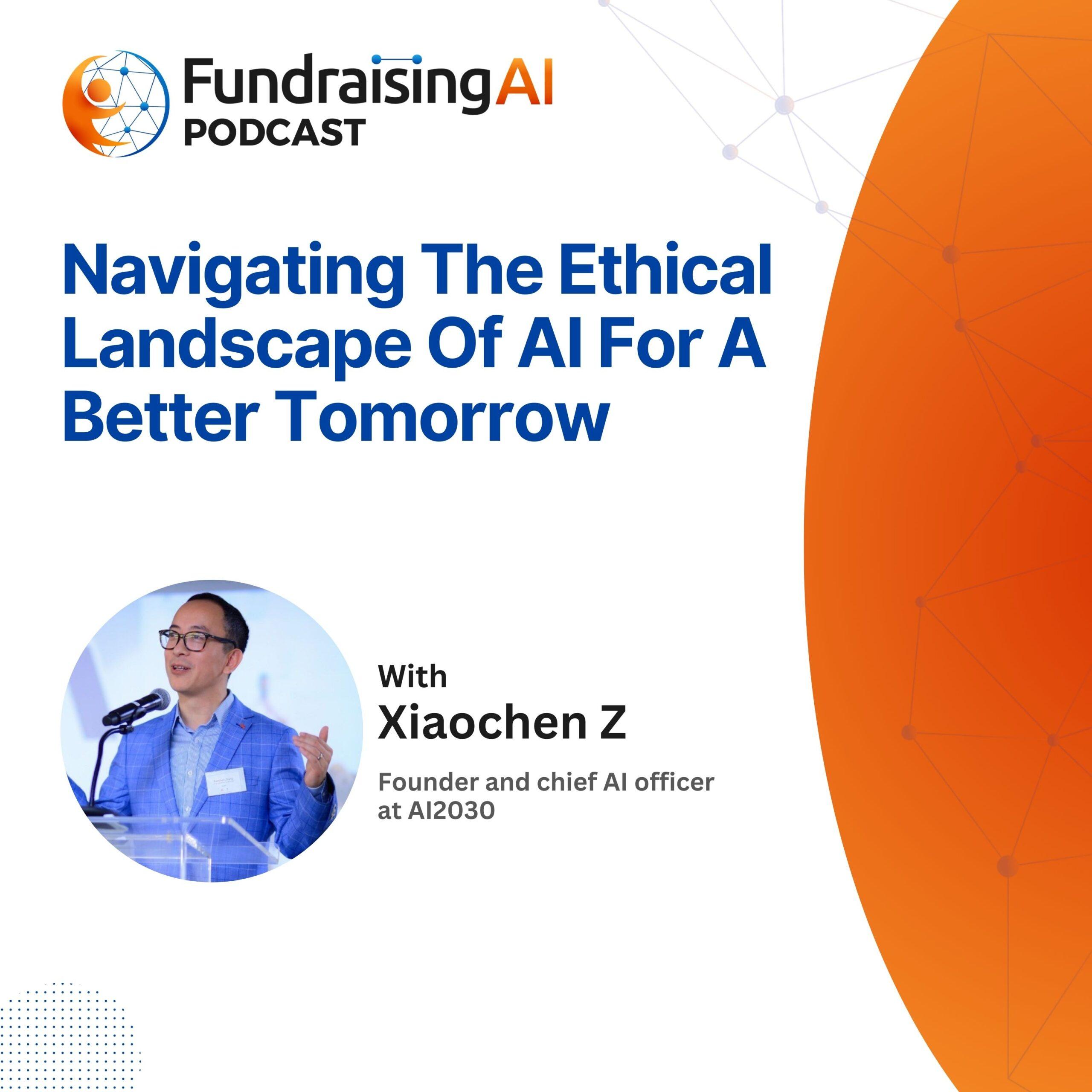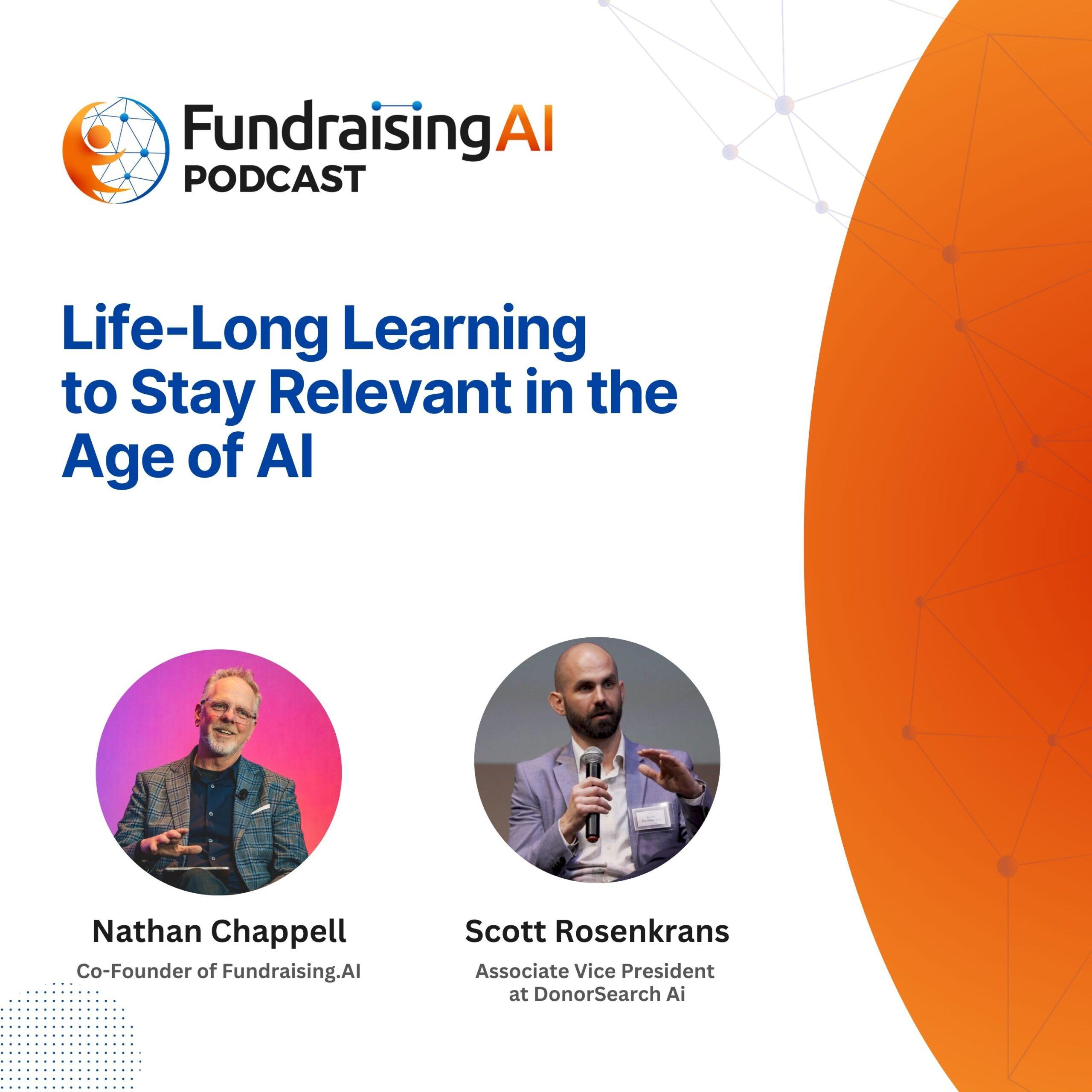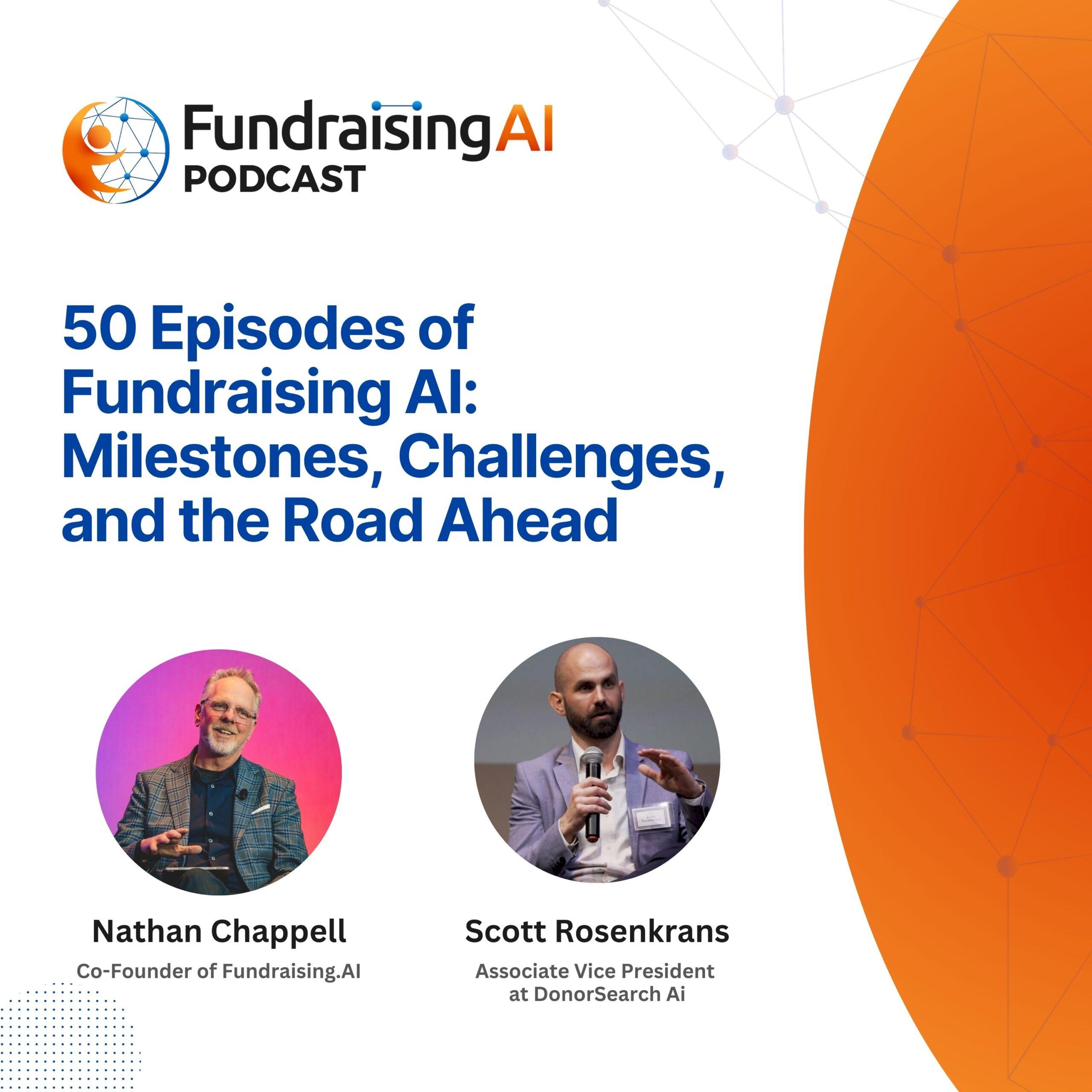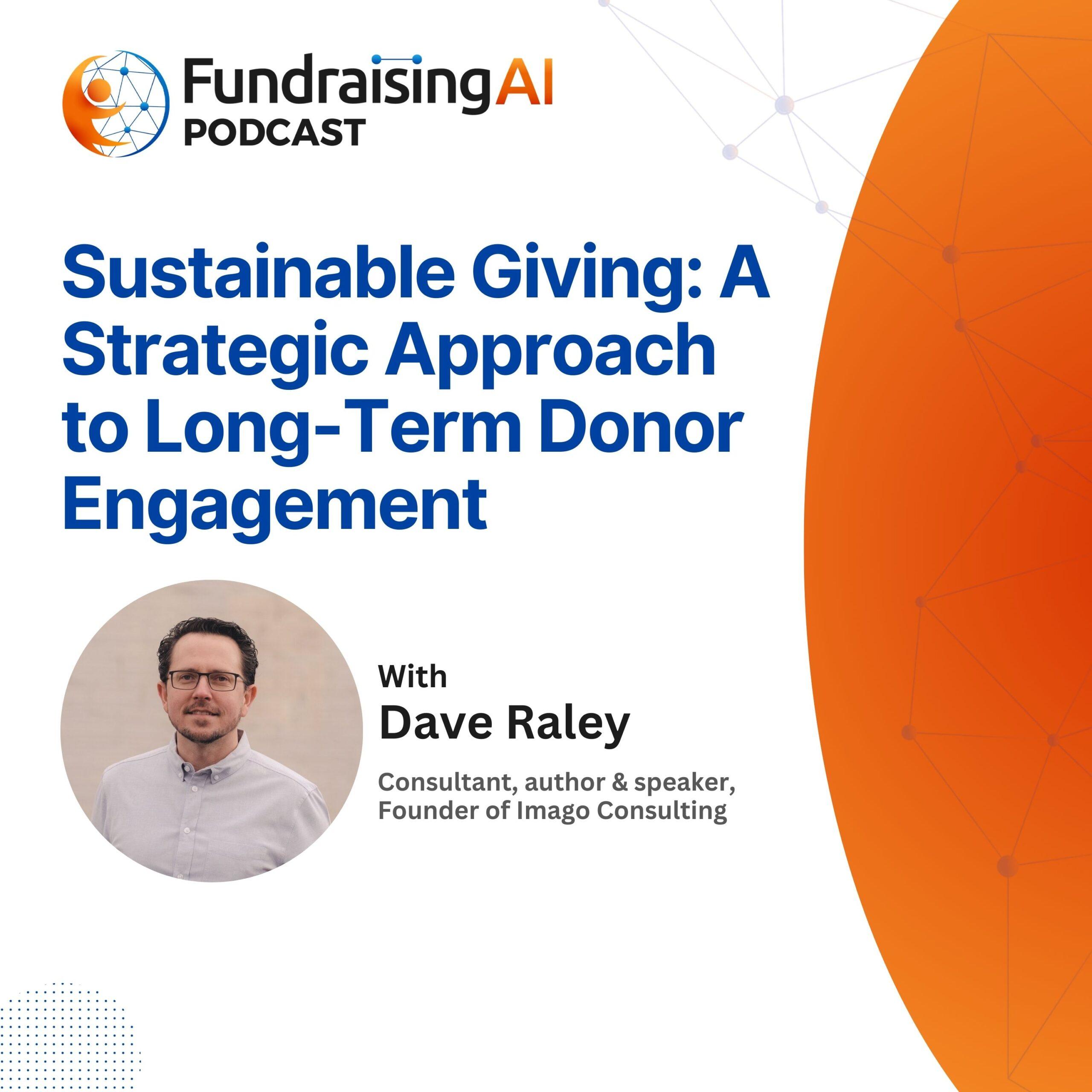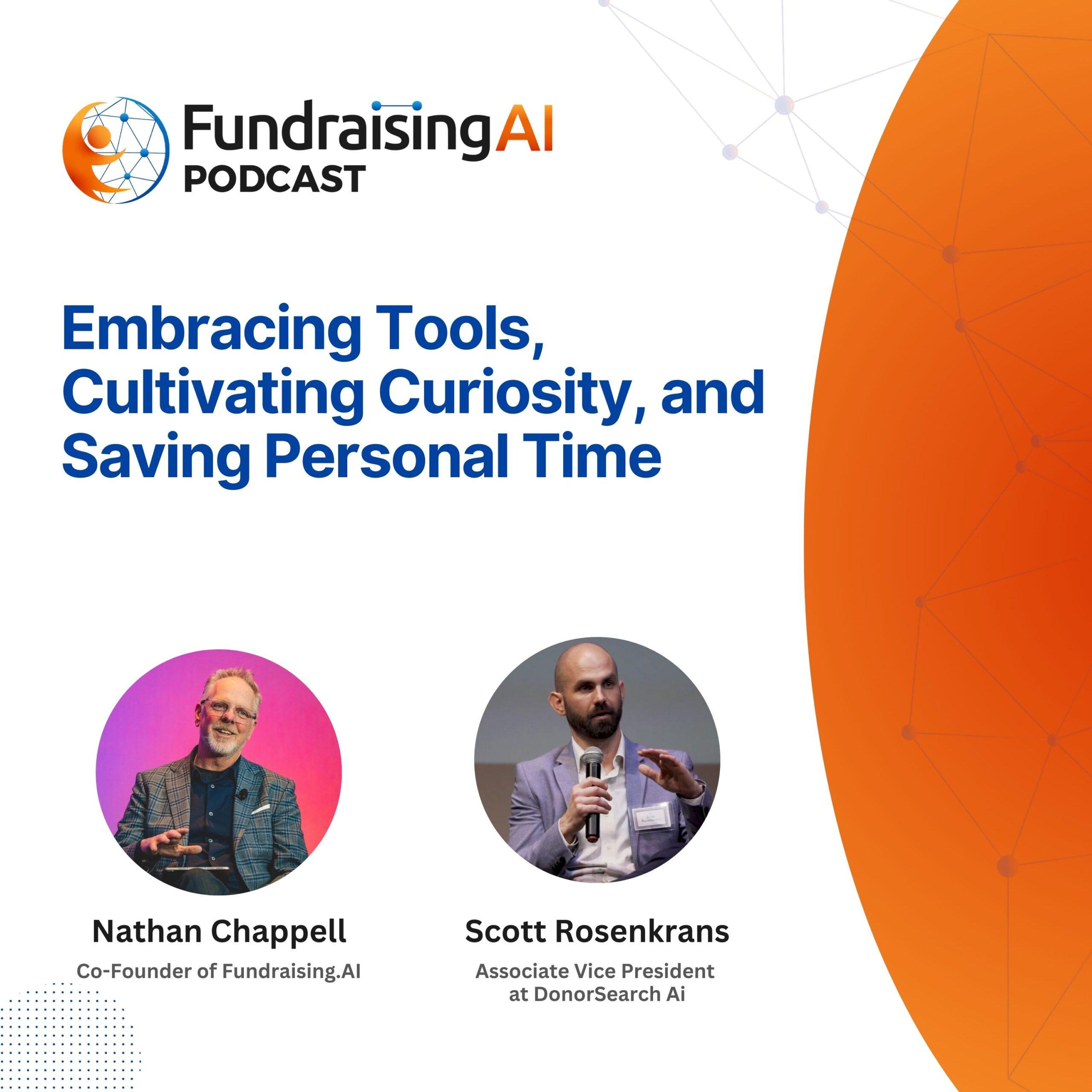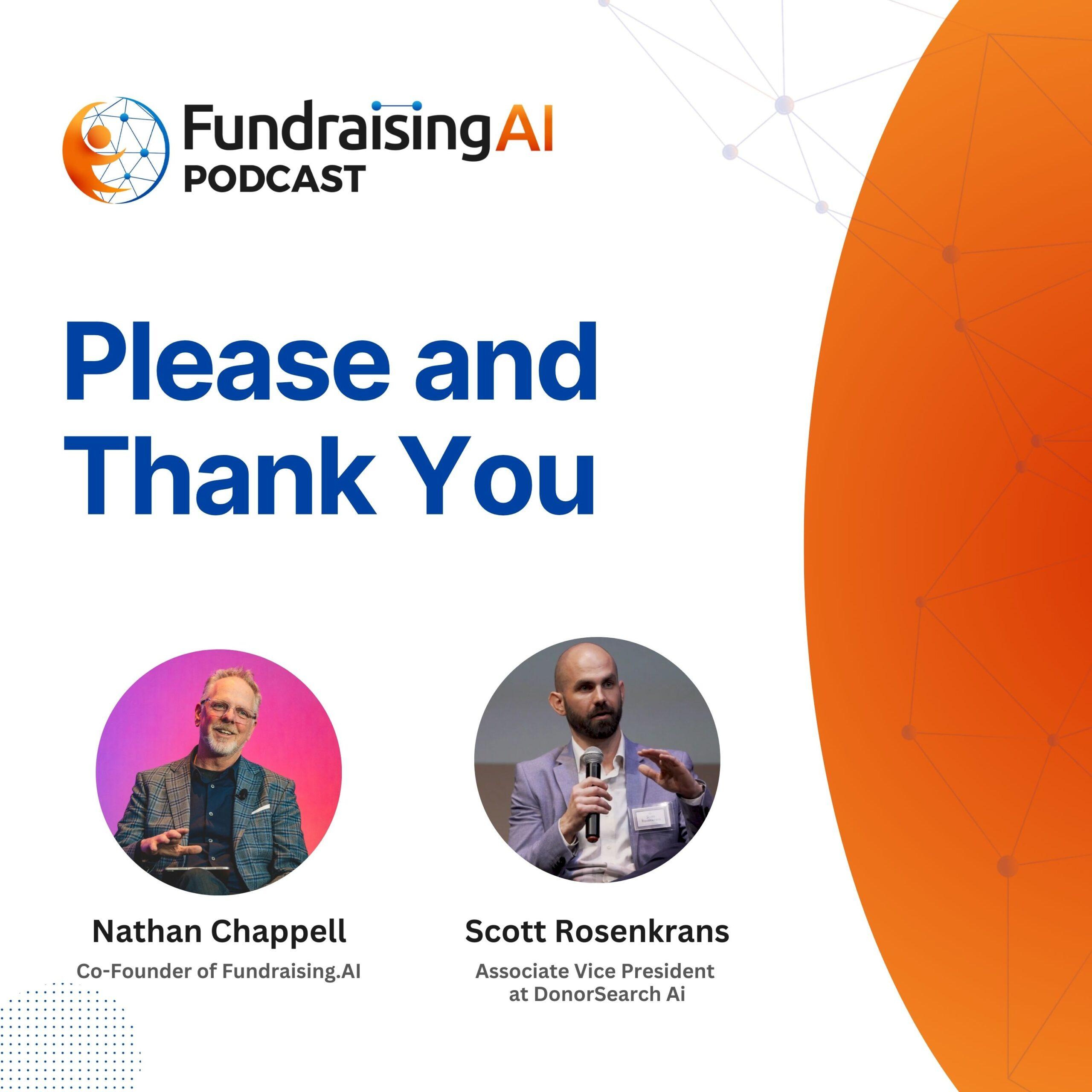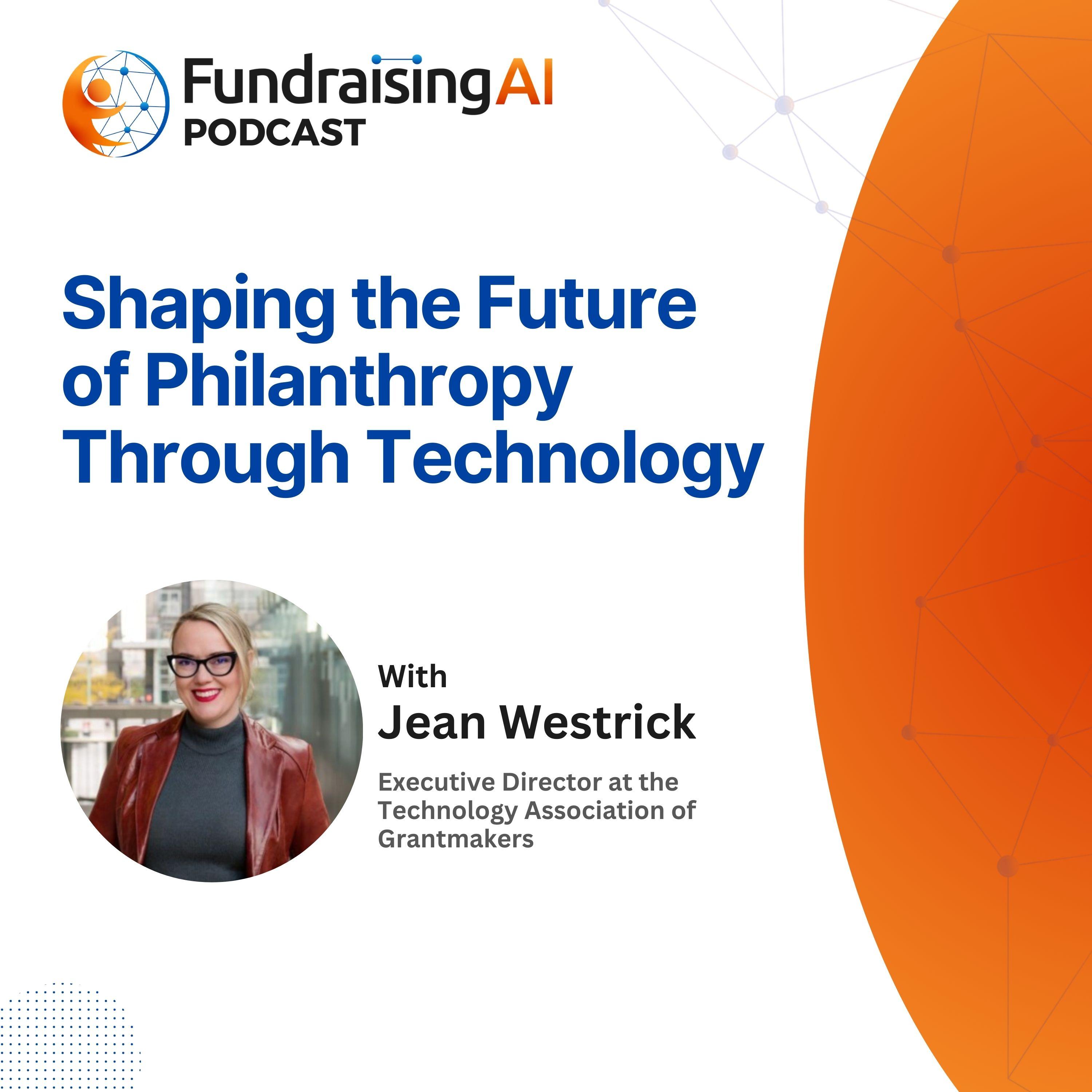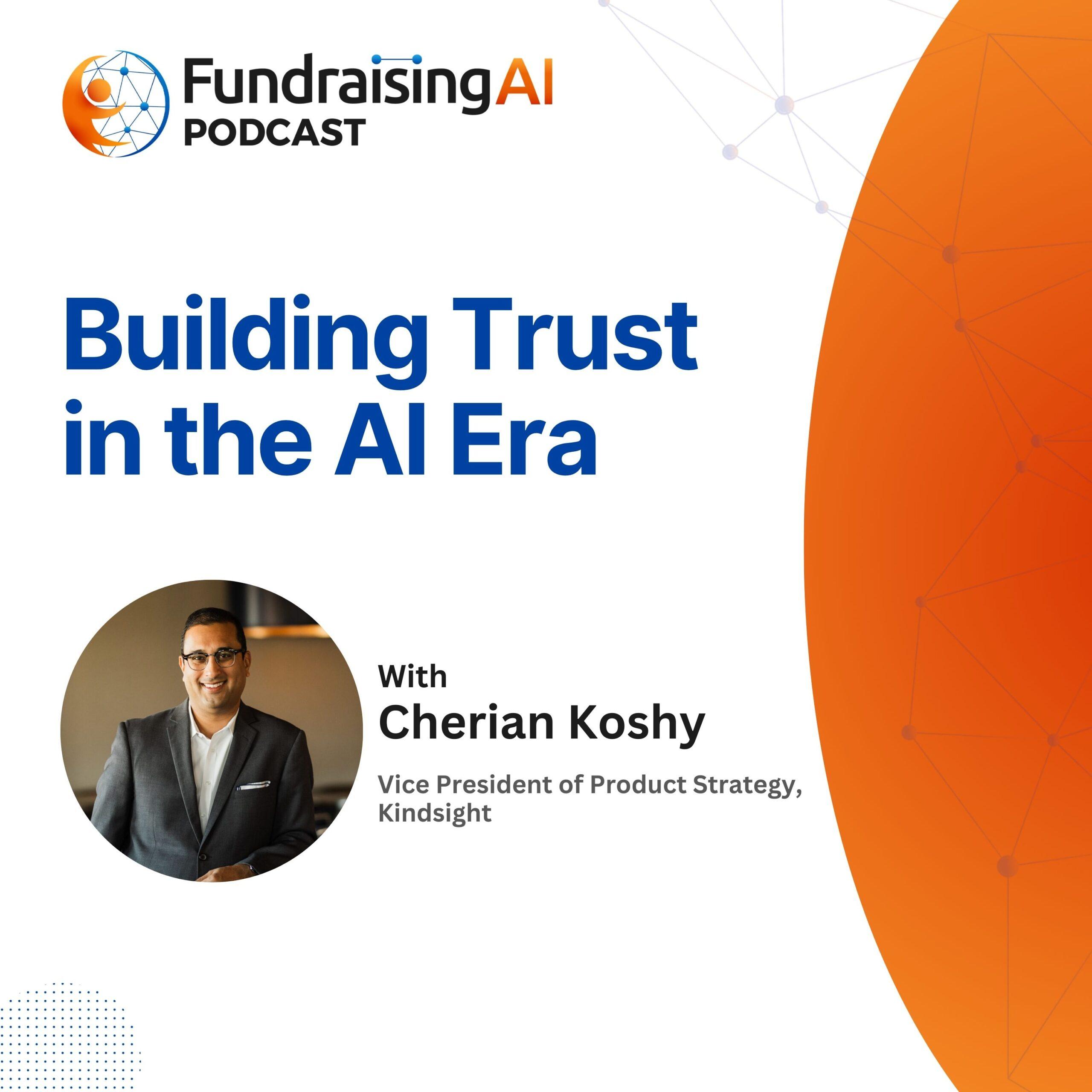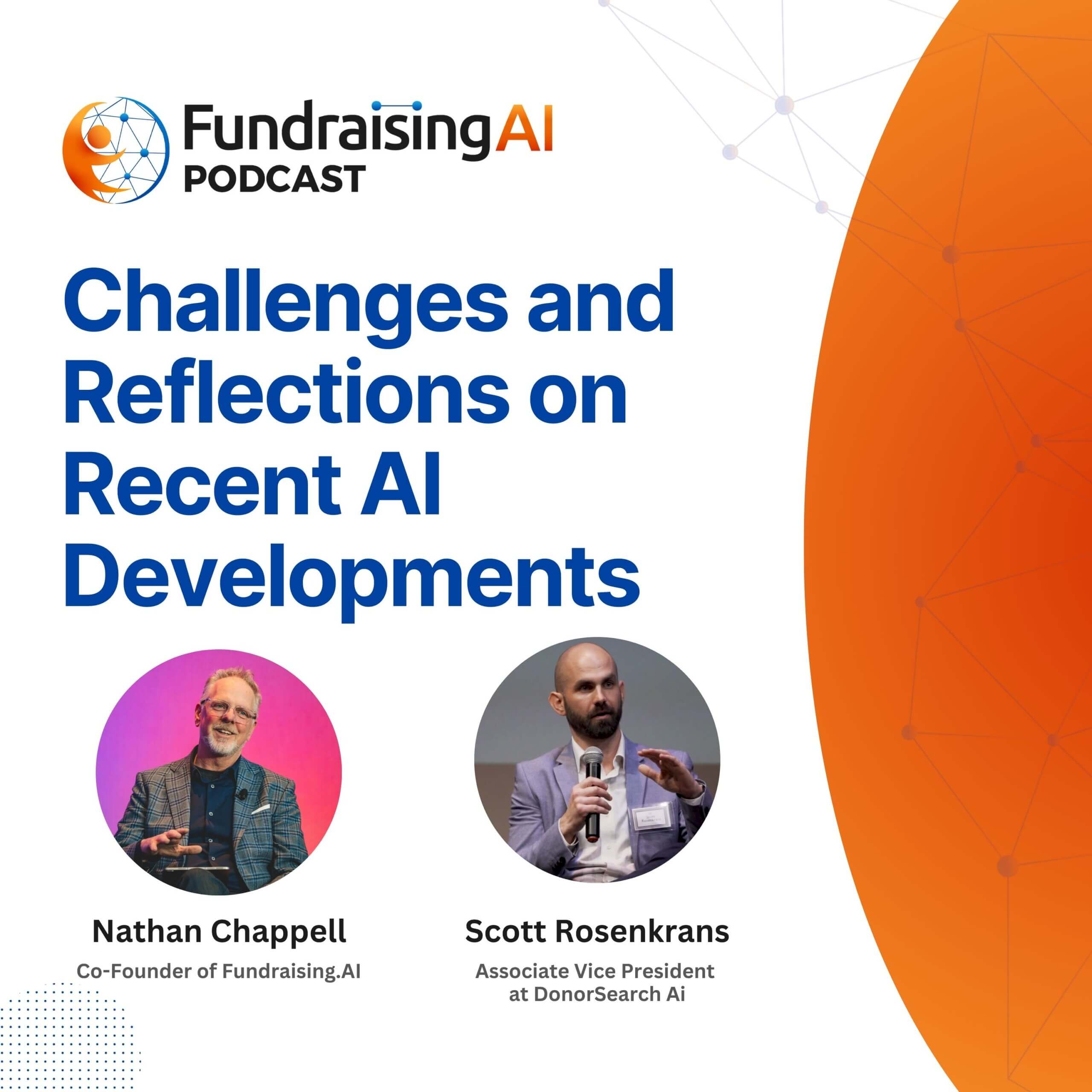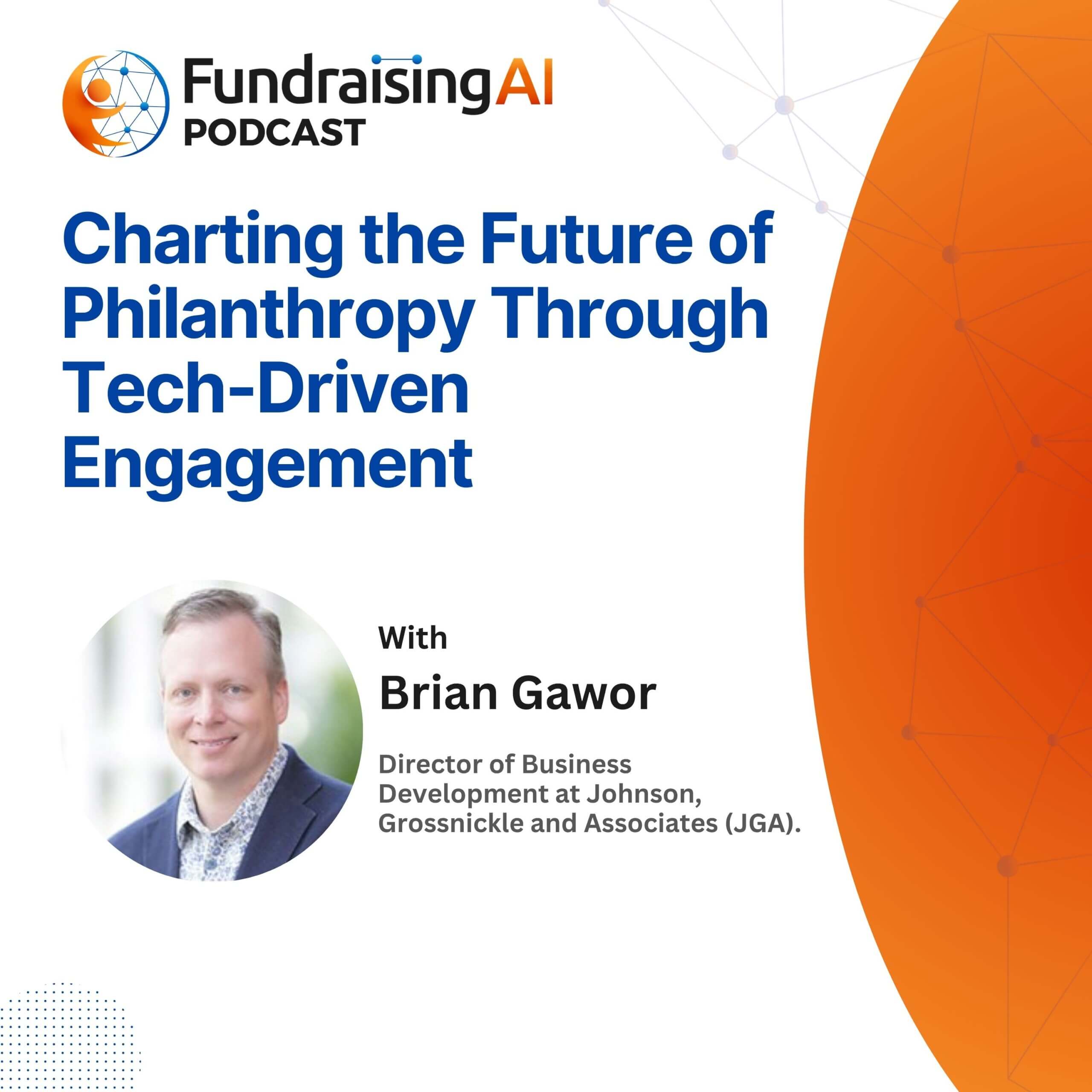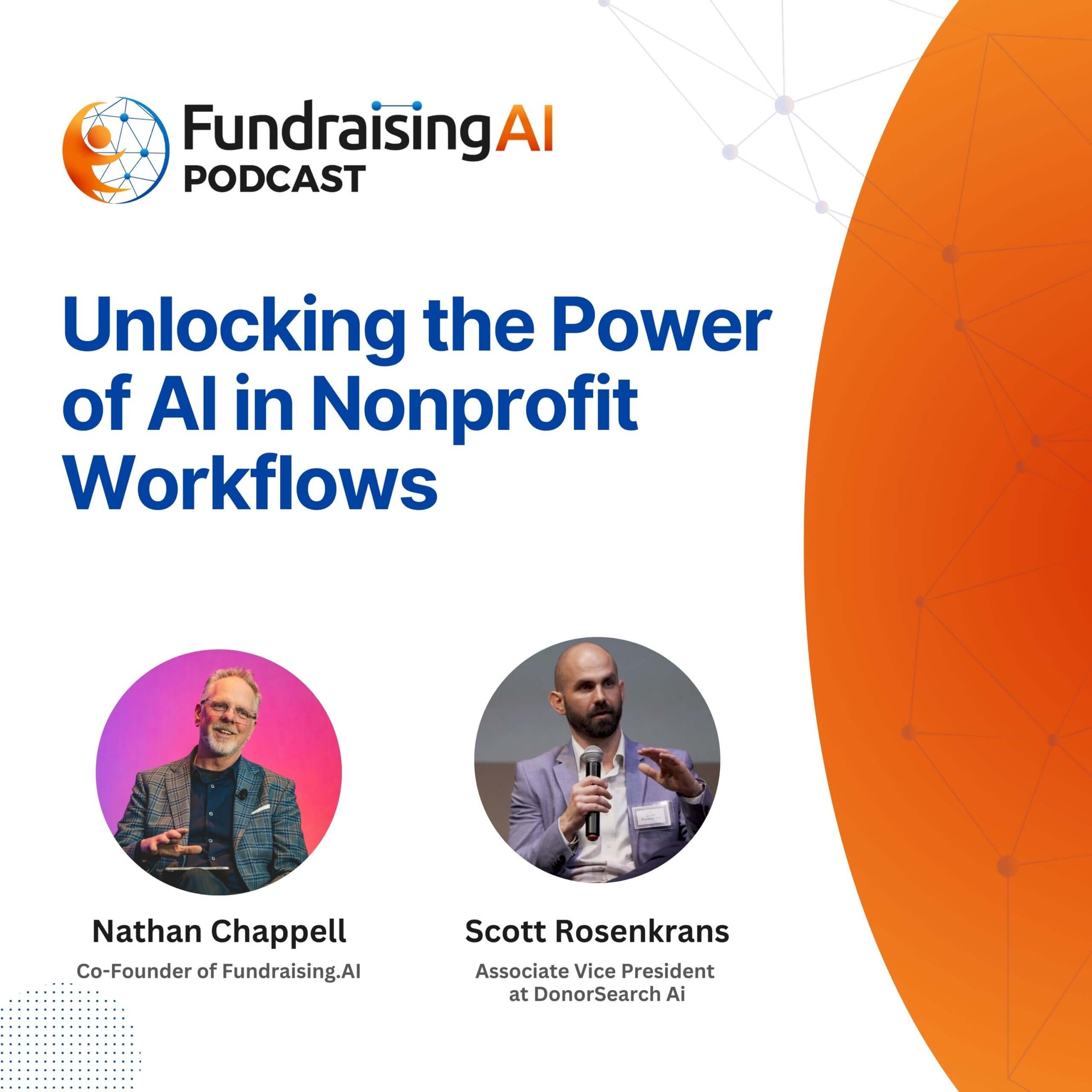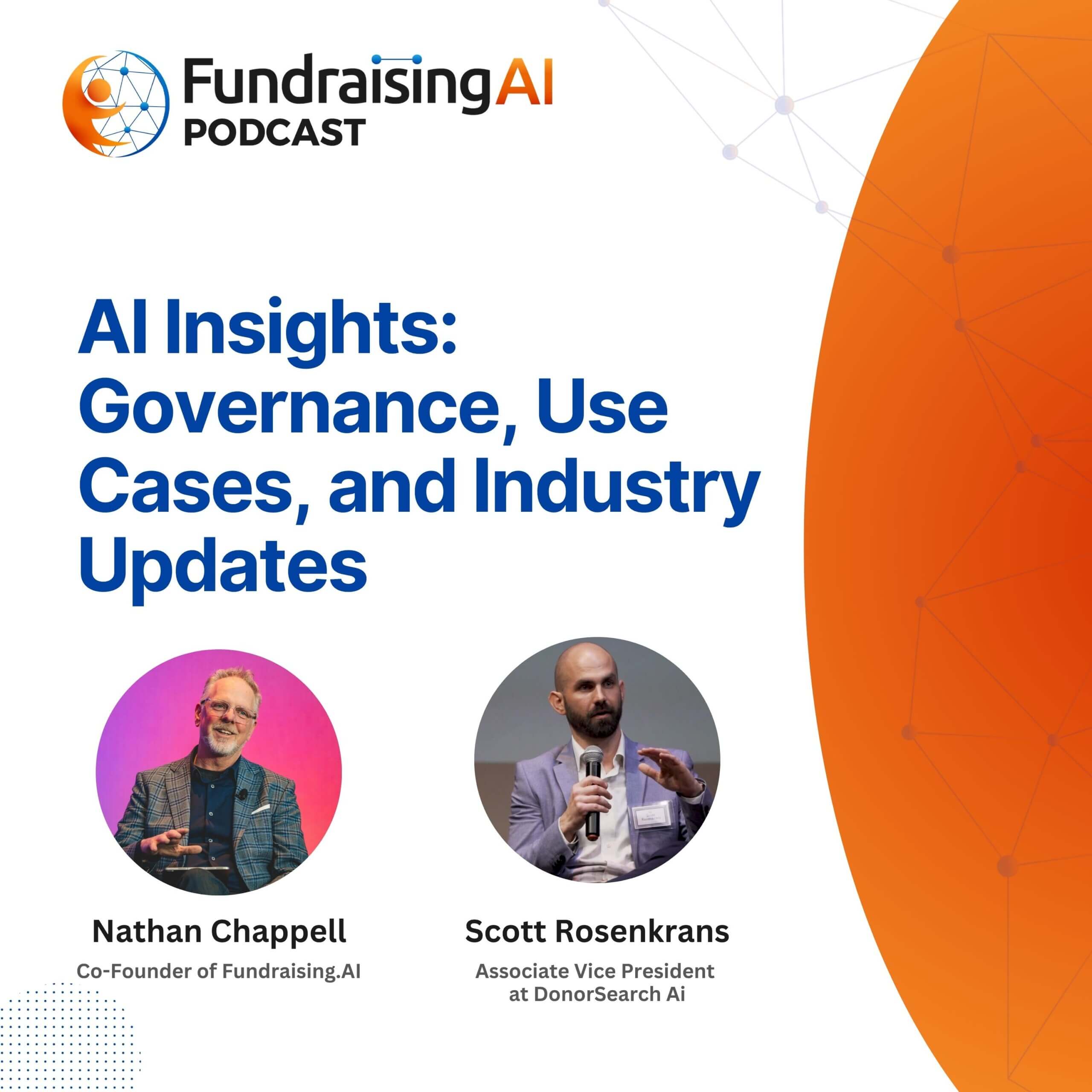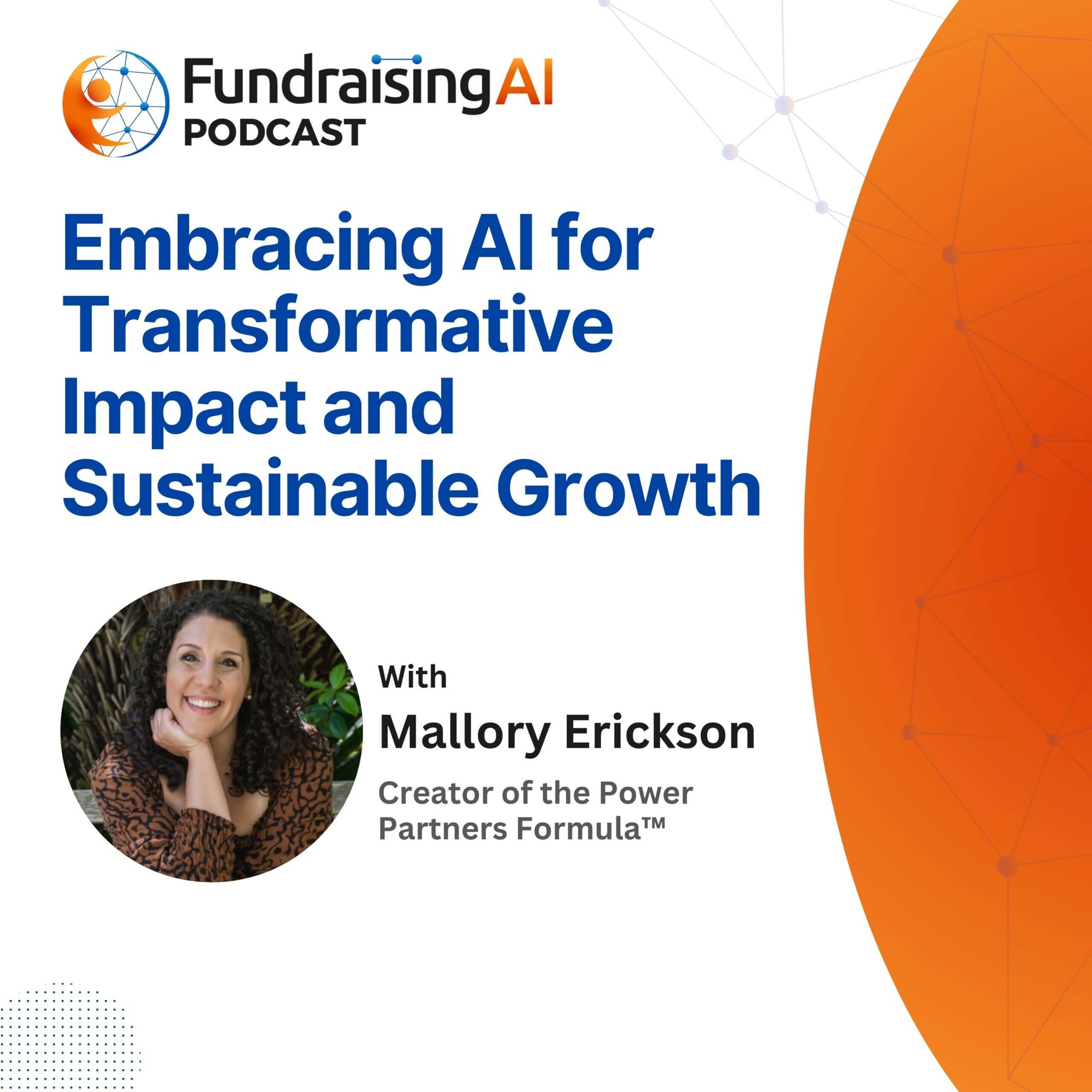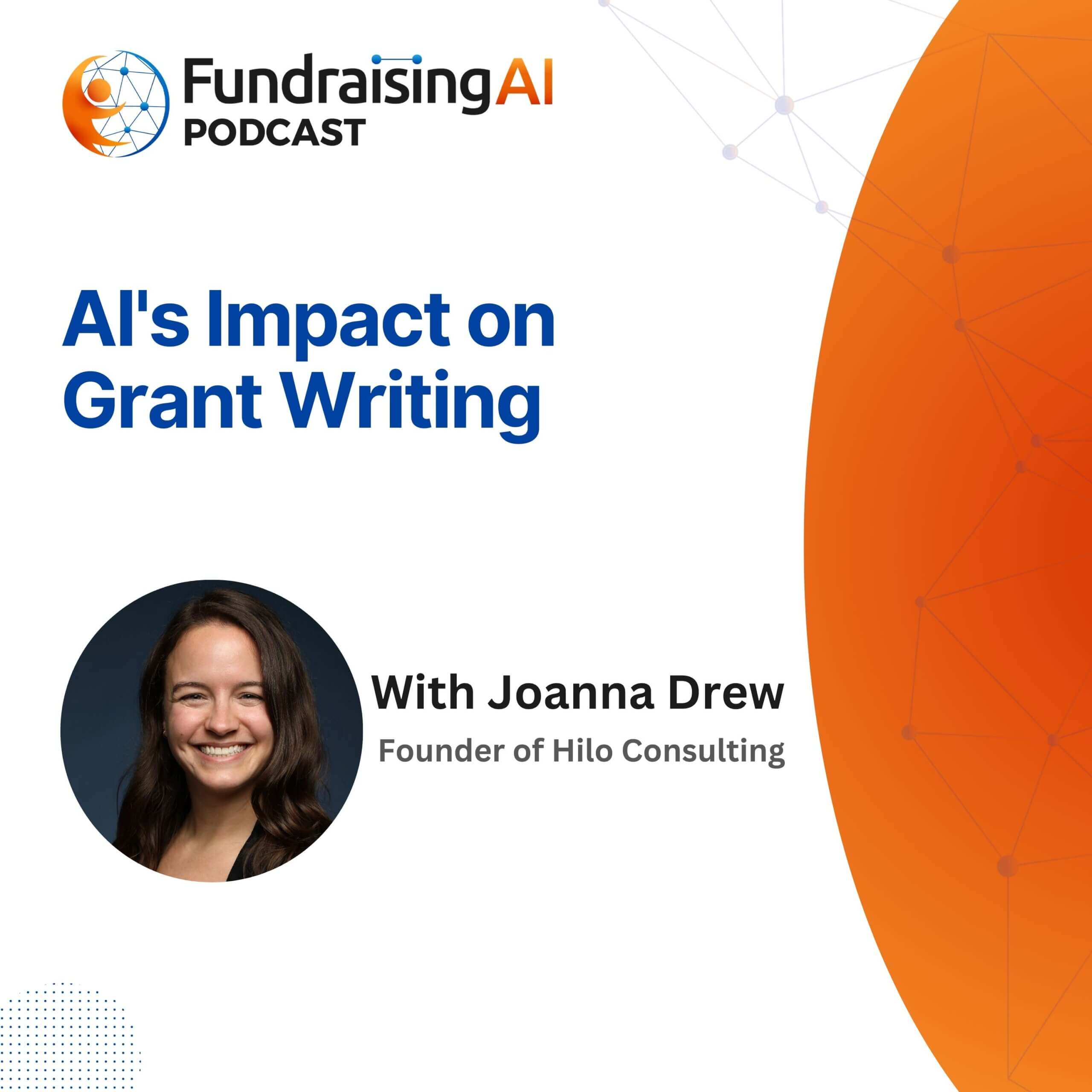Fundraising.AI
Episode 60
Authenticity Over Perfection: AI, Trust, and the Future of Healthcare Philanthropy

THIS EPISODE IS SPONSORED BY
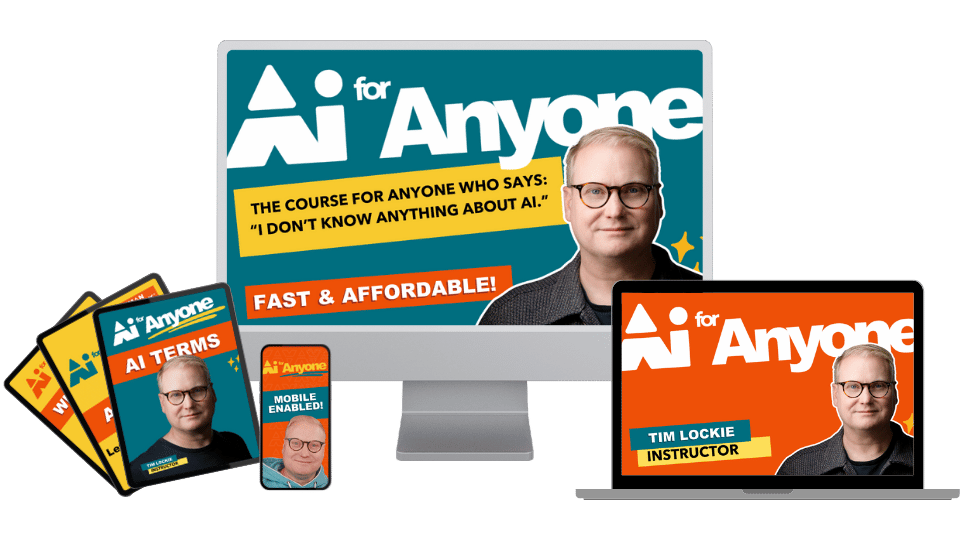
WATCH ON YOUTUBE

Listen To The Episode
OVERVIEW
AI is no longer a remote concept; it’s here, reshaping how we communicate, work, and lead. But in a value-based sector such as healthcare philanthropy, AI adoption isn’t just about innovation; it’s about alignment, trust, and purpose. Curiosity fuels exploration, and authenticity remains the most valuable currency of our time. As organizations struggle with bureaucracy, privacy, and ethical considerations, the only thing that remains true is that moving forward with AI needs more than just technology; it requires intentionality. In this week’s episode, Nathan and Scott explore the importance of staying true to yourself in the age of AI.
Nathan and Scott address you from the first AHP association for healthcare philanthropy, the AI Conference, and highlight the slow AI adoption of the healthcare industry due to bureaucracy and privacy concerns. Then, Nathan and Scott talk about the top two use cases of generative AI in the year 2025: ‘Therapy Companionship’ and ‘Organizing My Life.’ Nathan kindly explains the concept of ‘Great Flattening, ’ which is basically a return to the authenticity stage from internet perfection. Nathan also reminds us that the things technology can do are awesome, but it’s important to remember who we are without those curated perfections. They also share their take on the limitations of AI when it comes to providing emotional support. AI or any kind of bot can project and pretend, but it cannot ever feel the way humans do. Nathan further points out that the inherent human need to feel heard couldn’t be fulfilled by a bot.
Nathan and Scott also discuss the following topics further in the conversation: artificial intimacy, the manipulative nature of AI, and practical use cases for nonprofit AI.


EPISODE HIGHLIGHTS
- [01.13] AHP’s summit on Artificial Intelligence.
- [05.17] Enthusiasm, interest, and curiosity around AI in healthcare philanthropy.
- [11.12] The number 1 generative AI use case in 2025.
- [12.00] The high usage of AI therapy and companionship among certain age groups.
- [18.05] The Great Flattening.
- [22.00] The limitations of AI in providing emotional support.
- [25.20] Artificial intimacy and its effect on the human mind.
- [28.09] The manipulative nature of AI.
- [36.24] Practical use cases for nonprofit AI.
- [37.30] Tip of the Week – Level up your prompts by customizing how AI thinks.
- [40.00] Tip of the Week 2 - LMArena.ai for comparing different AI models.




TIPS AND TOOLS TO IMPLEMENT TODAY
- Encourage your team to have open conversations about AI.
- Today’s AI tools are accessible to anyone; dismiss the difficulty myth.
- Authenticity builds trust; imperfections can be your strengths, not flaws.
- Remember that a bot can project, pretend, but it never can feel.
- Keep in mind that AI is manipulative by design.
- Just because AI has a logical side doesn’t mean it can give you the best solutions to everything.
- Explore the potential of AI without skipping conversations about purpose and impact.
ADDITIONAL RESOURCES
- Allie K MIller's Linkedin Learning AI Course
- ChatGPT4 accurately predicts human behavior in social experiments at 85%, across genders, races, and political affiliations.
- AI Adoption Is Driving Real Top - And Bottom-Line Impact For Enterprises (Gartner)
- Gen AI is hitting a trough of disillusionment (Gartner Hype Cycle)
- A new AI Pendant created to combat loneliness
- AI-first organizations
- More departures at OpenAI
- OpenAI's GPT-5 is coming out soon. Here's what to expect.



FAVORITE QUOTES
- “As an organization, as a leader, it's imperative to lead a team to be curious.” – Nathan Chappell
- “It's not that it can be manipulative. It is manipulative by design.” Scott Rosenkrans
- “Generative AI is built to do two things. The number one design feature is to please the end user, and the other is, be right as often as possible.” – Nathan Chappelle
- “It's not like we can blame social media, but the reality is like, we're swiping away our lives to avoid the meaning of life.” – Nathan Chappell
- “We're moving into an era where people are finding much more intimacy with their AI.” – Nathan Chappell
- “AI can answer your question, but only a human can make you feel heard.” – Nathan Chappell
- “It is an inherent flaw of humans, thinking that robots are smarter than us because they're built on ones and zeros, and they have this amazing logic.” – Nathan Chappell
MEET YOUR HOSTS
Nathan Chappell
As a thought leader, public speaker, author and inventor, Nathan is one of the world’s foremost experts on the intersection between Artificial Intelligence and philanthropy. Nathan serves as Senior Vice President of DonorSearch AI, where he leads AI deployments for some of the nation’s largest nonprofit organizations. Nathan’s subject matter expertise has been featured in several publications, including Fast Company, University of Notre Dame and the Association of Healthcare Philanthropy. In 2021, Nathan founded Fundraising.Ai as a member-centric collaboration of nonprofit professionals with a focus on data ethics, data equality, privacy and security, sustainability. Nathan presented the first TEDx on the topic of artificial intelligence and the future of generosity in 2018. Nathan is a member of the Forbes Technology Council and holds a Masters in Nonprofit Administration from University of Notre Dame, an MBA from University of Redlands, a certificate in International Economics from University of Cambridge and a certificate in Artificial Intelligence from MIT.

Scott Rosenkrans
Scott Rosenkrans is the Assistant Vice President of DonorSearch Ai and has been with the organization for three years. He began his journey in the nonprofit sector twelve years ago as a prospect researcher. He quickly became fascinated with data as he noticed the organization that he previously worked for was amassing a wealth of information but was unsure how to efficiently use the data and resources to its full potential. This led him to become interested in predictive modeling and data analytics. During this time, he began to create an immense commitment to delivering tailor-made machine learning models to nonprofits.
The thing that Scott loves most about working for DonorSearch is the ability to prioritize what is best for the client and nonprofit sector above all else. He believes that growth is our most important core value because the DSAi team continuously evolves and brings a unique perspective that provides value to our clients. He stays ahead of industry trends because of his insatiable drive to constantly try out new things.
Favorite nonprofit: Shriner’s Children Hospital because of their extreme commitment to providing exceptional medical care, while also alleviating the financial burdens on families.
